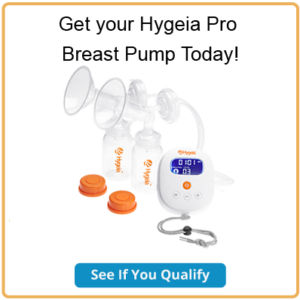 In a perfect world, every baby would be born in the perfect time and in the perfect way. Unfortunately, this is not the world we live in. Everyday, families’ worlds are turned upside down when they receive the news that their little one requires a stay in the Neonatal Intensive Care Unit (NICU). With increasing frequency, parents are having to ask “My Baby is in the NICU…Now What?”.
In a perfect world, every baby would be born in the perfect time and in the perfect way. Unfortunately, this is not the world we live in. Everyday, families’ worlds are turned upside down when they receive the news that their little one requires a stay in the Neonatal Intensive Care Unit (NICU). With increasing frequency, parents are having to ask “My Baby is in the NICU…Now What?”.
For many families in the midst of this chaos, breastfeeding is high on the priority list and yet their voices go unheard. The medical staff in the NICU have a wealth of experience and knowledge and they are skilled at keeping babies alive (but sometimes not so much at getting breastfeeding started). Hospitals that employ dedicated International Board Certified Lactation Consultants (IBCLC) in their NICUs should get heaps of praise!
I did an informal poll of parents who had infants in the NICU immediately following birth and I asked them about their experiences. They had the following to say:
“I will never forget my baby’s pediatrician hugging me and telling me that I would still be a GREAT mother even if I could not breastfeed. I also wish that my lactation consultant had told me about at the breast supplementers that could have saved our nursing experience.”
“The NICU nurse and lactation consultants told us we were not here to learn how to breastfeed. We were there to focus on them gaining weight and we could work on the breastfeeding at home.”
“It seemed like the staff had never seen real breastfeeding and kangaroo care before because they were so surprised to see me with my baby so much.”
Here are a few ways that you can advocate for yourself and your baby if you require a NICU stay* :
Practice Skin-to-Skin Contact: Skin-to-skin connection (sometimes called Kangaroo Care) is when a parent or other caregiver holds a baby (usually in only a diaper) against their bare chest. This practice has been recommended by a number of organizations that focus on the care of tiny newborns, including the March of Dimes. We know that babies and parents benefit greatly from being close like this. Breathing, heart rate, and body temperature all regulate well. Babies spend less time crying and it helps everyone to feel more connected. It is a regular recommendation for healthy, full-term infants as well!
Sometimes, parents feel scared to ask for skin-to-skin time, fearing that their little one is too fragile or will “break”. Even if your baby is connected to monitors and machines, many hospitals allow parents and infants to spend time together like this. Simply ask, “May I hold my baby skin to skin?” or “Does this NICU have a policy about kangaroo care? I would like to care for my infant in this way.” These can be simple ways to start caring more intimately for your baby.
Of course, sometimes babies are so critically ill that skin-to-skin care is not feasible. Continue to ask every day if you might hold your little one on your chest. The day will come and can be a positive encounter for connection.
Ask (even Demand!) to see an International Board Certified Lactation Consultant (IBCLC): We have a saying in our lactation consultant field that IBCLCs “empower mothers and save babies’ lives.” If ever a phrase rang true, it is in the NICU setting. The nurses who work in the NICU have legendary longevity and experience but, even so, families often require the specialized care of an IBCLC. If your NICU has an IBCLC, ask to see them immediately. If there isn’t someone specifically assigned to their unit, ask to see another IBCLC employed by the hospital. Parents with little ones in the NICU are most in need of the support, education, and empowering that an IBCLC can provide.
Start Hand Expression (or let someone else do it for you): We recently published a blog post about using hand expression. It can be a critically important skill for mothers with babies in the NICU. Dr. Jane Morton, of Stanford University, has done extensive research in this area and has found that the use of hand expression, especially in mothers of preterm infants, can increase not only the volume of milk expressed but the calorie content as well. Dr. Morton offers an EXCELLENT video on the subject, which empowers mothers to meet the unique needs of their NICU babies. If you are too ill to do this yourself, someone can do it for you. I still get all teary-eyed when I read this blog post from a woman who expresses (pun intended!) her gratitude to her best friend who was willing to do the hard work for her to get the desperately needed colostrum to her twins.
Request donor milk: Sometimes, in the midst of stress and struggle and medical challenges and circumstances out of a family’s control, a mother cannot produce the milk required by her infant in the NICU. Since human milk is a critical need, “medicine” if you will versus nutrition, for tiny and sick babies, families can request donor milk for their little one. In the US and Canada, we are fortunate to have a number of milk banks, with the Human Milk Banking Association of North America (HMBANA), who provide donated and pasteurized milk to these infants. Having access to this milk can literally mean the difference between life and death as necrotizing enterocolitis (NEC) can be a tragic and difficult diagnosis, especially in very low birth weigh babies. This disease impacts a baby’s digestive system and the use of donor milk instead of formula can significantly decrease the risk of this condition. “The stark differences in the risk of NEC, its complications and the need for surgery between babies who receive human donor milk and those who get formula signal the need for a change in feeding practices across neonatal intensive care units,” said Elizabeth Cristofalo, M.D., a neonatologist at Hopkins Children’s. If your hospital’s NICU does not make donor milk regularly available to patients, you can asked to have it shipped to your hospital.
There are a number of challenges for parents with babies in the NICU and breastfeeding is often at the top of the list. I hope that this list gives you encouragement and clear action steps. Most of all, remember that, even with a NICU stay, breastfeeding can be an important and rewarding part of parenting your little one.
If you had a baby in the NICU, what did you find most helpful?
* If you aren’t able to advocate for yourself, ask for a hospital advocate, doula, or family member to help you.

